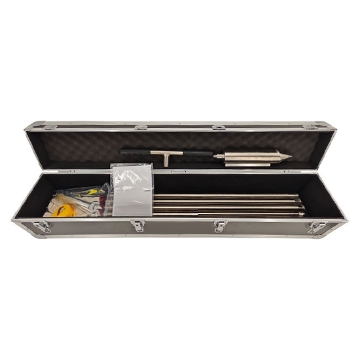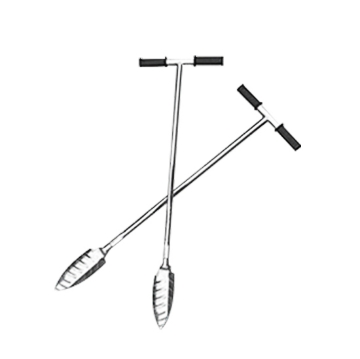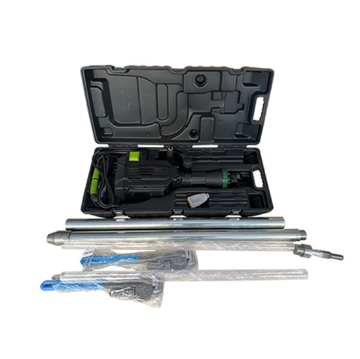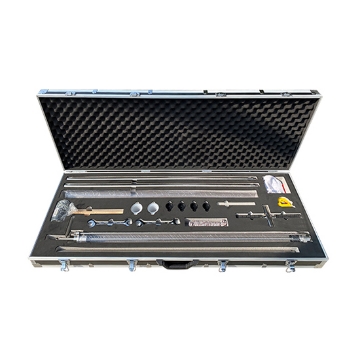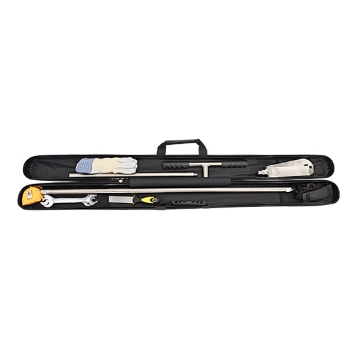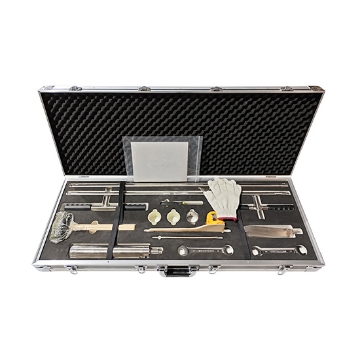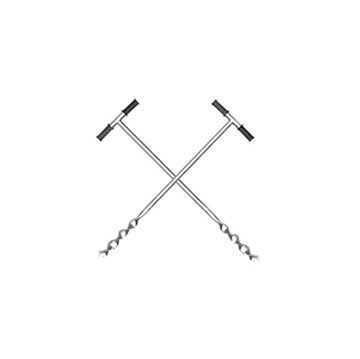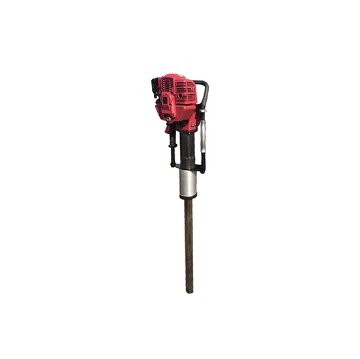Soil Samplers
Soil Core Sampler Kit
SISCO-SS-JC0203
The soil core sampler kit is designed for efficient, deep soil sampling. Its rotating and sealing drill body ensures direct extraction from the specified depth without disturbing upper layers, making it ideal for analyzing loose soils like sediment, marsh, and mud-carbon soil without borehole collapse.
$1,095.64
Soil Auger Sampler With T Handle
SISCO-SS-JC802A
The heart-shaped soil auger sampler with T handle is an efficient sampling tool designed specifically for agricultural research, soil testing, environmental monitoring, and other fields. Its heart-shaped design facilitates deep penetration into soil layers, improves sampling efficiency, and reduces disturbance to soil structure, ensuring sample representativeness.
$429.77
Electric Soil Sampler Kit
SISCO-SS-JCRTTC20
The electric soil sampler kit is a professional-grade solution designed for efficient, consistent, and effortless soil sampling in agriculture, environmental research, and geotechnical applications. Powered by a high-torque electric motor, this kit eliminates the need for manual digging, significantly reducing labor intensity and increasing sampling efficiency.
$3,724.85
Piston Soil Sampler Kit
SISCO-SS-JC801A
The piston soil sampler kit is a professional-level soil sampling tool designed specifically for environmental surveys, agricultural research, geological exploration, and other scenarios. This kit adopts a piston-driven design, effectively reducing disturbances during the sampling process and ensuring the representativeness and originality of the collected samples.
$1,138.92
Stainless Steel Core Soil Sampling Kit
SISCO-SS-JC803A
This stainless steel core soil sampler kit is designed for field soil sampling and is particularly suitable for geological exploration, environmental surveys, soil testing, and agricultural research. The stainless steel core soil sampler kit adopts a split design that facilitates quick on-site sampling and sample observation. It is durable and sturdy, easy to carry, and suitable for various soil types.
$738.92
Sampler Machine for Soil Heavy Metals Kit
SISCO-SS-JC803D
The sampler machine for the soil heavy metals kit is a specialized portable sampling device designed for efficient collection of soil samples intended for heavy metal analysis. It is suitable for use in environmental monitoring, agricultural assessments, contaminated site investigations, and geochemical prospecting.
$923.54
Stainless Steel Soil Probe Dill
SISCO-SS-JC802C
The stainless steel soil probe drill is a high-quality tool designed for efficient and precise soil sampling in agricultural, environmental, and scientific applications. Crafted from corrosion-resistant stainless steel, this soil probe ensures long-lasting durability even under harsh field conditions.
$408.63
Soil Sampler for Solution Sampling
SISCO-SS-JCTRSW
The soil sampler for solution sampling is a specialized tool designed for the in situ extraction of soil pore water or soil solution for chemical and nutrient analysis. Ideal for agricultural research, environmental monitoring, and soil science studies, this device allows accurate, uncontaminated collection of soil solutions at various depths.
$725.54
Soil Drilling Machine for Sampling
SISCO-SS-JCTQZ
The single-person handheld soil drilling machine for sampling is a lightweight soil collection drilling rig designed based on reference to large hydraulic, gasoline, and pneumatic drilling rigs. Even inexperienced drilling personnel can operate with simple training. The sampling process is extremely simple, and only 1 to 2 people can complete the operation of the equipment. The entire drilling process does not require adding water, ensuring the quality of the sample obtained (no pollution, no disturbance).
$3,151.69
A soil sampler is a precision instrument designed to extract representative soil samples from the ground. It ensures consistency in sampling depth and volume, which is critical for accurate laboratory analysis. It helps determine soil fertility, moisture, texture, pH, nutrient levels, and presence of contaminants.
Types of Soil Samplers
- Soil Probes/Tubes: These are hollow tubes that are pushed or hammered into the ground to extract a soil core. They are ideal for relatively undisturbed soil samples.
- Augers: Augers have a rotating cutting edge that drills into the soil. They are useful for deeper samples or in harder soil conditions.
- Core Samplers: These samplers are designed to extract cylindrical samples, preserving the soil's vertical structure and layers.
- Push Tubes: Simple push tubes are manually inserted into the soil to collect a sample.
- Hydraulic Probes: These probes use hydraulic power to push the sampler into the ground, allowing for deeper sampling, especially in compacted soils.
- Specialized Samplers: There are also specialized samplers for specific purposes, such as collecting samples for volatile organic compound analysis.
Applications of Soil Samplers
- Agriculture: Assess soil health for optimized fertilizer use and crop rotation strategies.
- Environmental Science: Monitor soil contamination or remediation efforts.
- Geotechnical Engineering: Engineers use soil samplers to collect samples for geotechnical investigations to assess soil properties for construction and infrastructure projects.
- Gardening and Landscaping: Home gardeners and landscapers use soil samplers to understand soil composition and determine appropriate soilamendments and planting depths.
Considerations When Choosing a Soil Sampler
- Soil Type: Different soil types (e.g., sandy, clayey, rocky) require different sampler types.
- Sampling Depth: Consider the depth at which you need to collect samples.
- Desired Sample Size: Select a sampler that collects the appropriate volume of soil for your analysis.
- Level of Soil Disturbance: For some analyses, minimizing soil disturbance is crucial, making core samplers ideal.
- Portability and Ease of Use: Choose a sampler that is easy to transport and operate.
- Cost and Durability: Balance your budget with the need for a durable and reliable tool.
User Value
- Data-Driven Decisions: Helps users make informed choices based on lab results.
- Cost Efficiency: Reduces guesswork in fertilization or land development.
- Regulatory Compliance: Enables accurate reporting in environmental audits.
- Time Savings: Speeds up fieldwork with standardized sampling processes.

